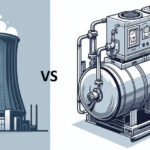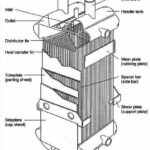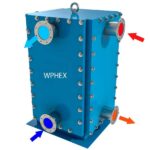This article will discuss industrial compressor types and their applications, will also look at their advantages and disadvantages
What is industrial compressors?
Industrial compressors are devices that compress air, gases, or liquids to increase their pressure and store them in a tank. The compressed air, gases, or liquids can then be used as a source of energy for various industrial applications.
They play a critical role in many industrial processes, providing compressed air or gas to power pneumatic tools, drive production machinery, and more. There are many different types of industrial compressors, including rotary screw compressors, reciprocating compressors, and centrifugal compressors, each with its own unique design and operating principles.
Industrial compressor types
Some common industrial compressor types include
- Positive Displacement Compressors: This type uses a mechanical device to trap a fixed volume of air, gas, or liquid and then compress it. Examples include reciprocating compressors, rotary screw compressors, and vane compressors.
- Dynamic Compressors: This type of compressor works by increasing the velocity of air, gas, or liquid, which in turn increases its pressure. Examples of dynamic compressors include centrifugal compressors and axial flow compressors.
- Portable Compressors: This type is designed for mobility and can be easily transported from one location to another. Portable compressors are commonly used for applications such as sandblasting, painting, and air tool operation.
This short list summarise generally industrial compressor types, we can look below at their applications.
Industrial Applications
Applications include:
- Manufacturing: Industrial compressors are used in a variety of manufacturing processes, such as pneumatic tools, packaging, and assembly line operations.
- Power Generation: Compressed air is often used as a source of energy for power generation in industrial applications.
- Refrigeration and Air Conditioning: Compressed gases are used as refrigerants in refrigeration and air conditioning systems.
- Oil and Gas Industry: Industrial compressors are used in the oil and gas industry for various applications, such as gas compression, pipeline compression, and gas lift.
- Mining: Portable compressors are commonly used in the mining industry for pneumatic drilling and excavation.
- Medical: Compressed air and gases are used in the medical industry for various applications, such as breathing apparatus, respiratory therapy, and cryogenics.
This summarise their applications.
Industrial compressors advantages and disadvantages
Advantages:
Versatility: They can be used for a wide range of applications, making them a versatile and flexible component in many industrial processes.
Efficiency: Modern industrial compressors are designed for energy efficiency, reducing operating costs and improving overall system performance.
Durability: They are designed to withstand the harsh operating conditions of many industrial environments, ensuring reliable performance and long service life.
Cost-effective: They can provide a cost-effective power source for a wide range of applications, reducing the need for expensive electrical power sources.
Disadvantages
Maintenance requirements: Industrial compressors require regular maintenance to ensure optimal performance and to extend the service life of the equipment.
High start up cost: Industrial compressors can be expensive to purchase, especially for large or complex systems.
Noisy: Industrial compressors can be loud, especially during operation, which can be a drawback in some applications, such as in office or residential settings.
Energy consumption: Industrial compressors can consume a significant amount of energy during operation, leading to increased operating costs.
| Advantages | Disadvantages |
|---|---|
| Versatility | Maintenance requirements |
| Efficiency | High start up cost |
| Durability | Noisy |
| Cost effective | High Energy consumption and running costs |
Hopefully this short article did give some insight on industrial compressor types, applications, advantages and disadvantages. We have another article that discuss general guidelines about compressors. find it here. There is also other articles that maybe of interest. For more please feel free to explore the menu, search and keyword tags.
Sponsors
Engineer it for me – software for business and engineers












